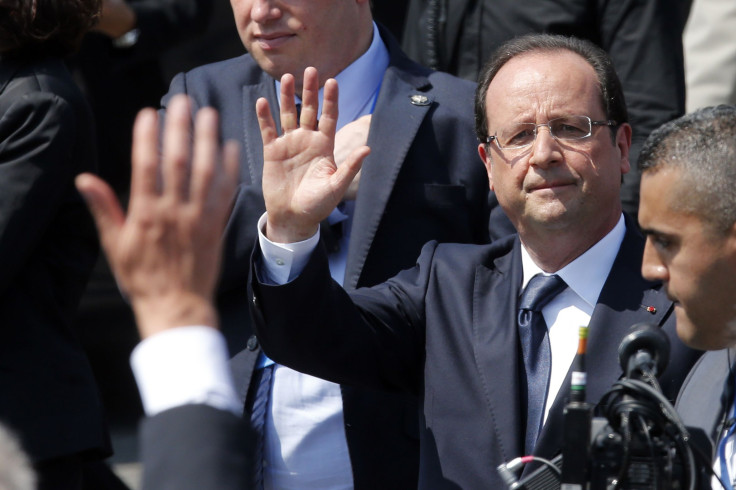France’s Top Court Approves 75% Super-Tax On Millionaires: Too Little Too Late?

The Constitutional Council, the highest court in France, has approved a 75 percent income tax rate – the so-called “millionaire’s tax” -- proposed by the Socialist government of President Francois Hollande as one of its fundamental policy measures. Last year, such a tax was deemed unconstitutional by the same court, which prompted the government to modify the proposed levy by having it apply to those Frenchmen and women earning at least 1 million euros ($1.38 million) in yearly salary. Under the modified plan, French companies will be required to pay 50 percent tax on all employee salaries in excess of 1 million euros. In addition, including social contributions, the effective tax rate will amount to 75 percent. However, the total tax payout will be capped at 5 percent of a corporation’s annual turnover.
The tax will be imposed for a two-year period, and applied retroactively to salaries earned in 2013 and also next year. Hollande and other government figures asserted that the taxes (in tandem with spending cuts) are necessary to reduce France’s huge public deficit. Polls, which generate criticize Hollande and castigate his performance in office, nonetheless suggest that most of the public approves of higher taxes on millionaires.
But the proposed tax elicited howls of protest from France’s wealthy elite, including deep-pocketed businessmen and most prominently actor Gerard Depardieu, who protested the measure by departing the country for neighboring Belgium and even Russia. Depardieu angrily surrendered his French passport, citing that Hollande wanted to punish successful people. In response, Prime Minister Jean-Marc Ayrault lambasted the actor as "pathetic."
One of the many interesting aspects of this tax has to do with professional football clubs in France, which fear that they will lose their top players (who earn millions annually) to teams in other countries with lower tax rates. Already, football squads had vowed to go on strike should the tax pass. For example, BBC reported that the Paris Saint-Germain club, which is owned by Qataris, has 10 players on its roster who each make in excess of 1 million euros annually, including striker Zlatan Ibrahimovic.
Reuters reported that the tax will impact about 470 companies and about a dozen football clubs.
But the Constitutional Council did not give everything that Hollande wanted. Among other things, they rejected proposals to impose taxes on potential gains; and they also squelched measures designed to hammer residents and companies seeking legal loopholes to reduce their tax burdens. British Prime Minister David Cameron (in the U.K. the highest tax rate is at 45 percent) has also criticized France’s millionaires tax and said that French tax exiles are welcome to settle in the U.K.
Some observers in the U.S. have also condemned Hollande’s supertax. CNBC reported that the new tax is expected to raise less than 1 billion euros, which will not be sufficient to erase France’s public deficit. "Taxation is reaching the level of some of the Scandinavian countries," Michala Marcussen, global head of economics at Societe Generale, told CNBC. "It's very hard to see how France can increase this further." Indeed, France is suffering from record high employment and a stagnating economy. CNBC noted that 1 percent GDP growth is not even in the cards for 2014. "Hollande has to focus on long-term sustainability and economic growth. It's all about the structural reform," Marcussen added.
© Copyright IBTimes 2024. All rights reserved.











